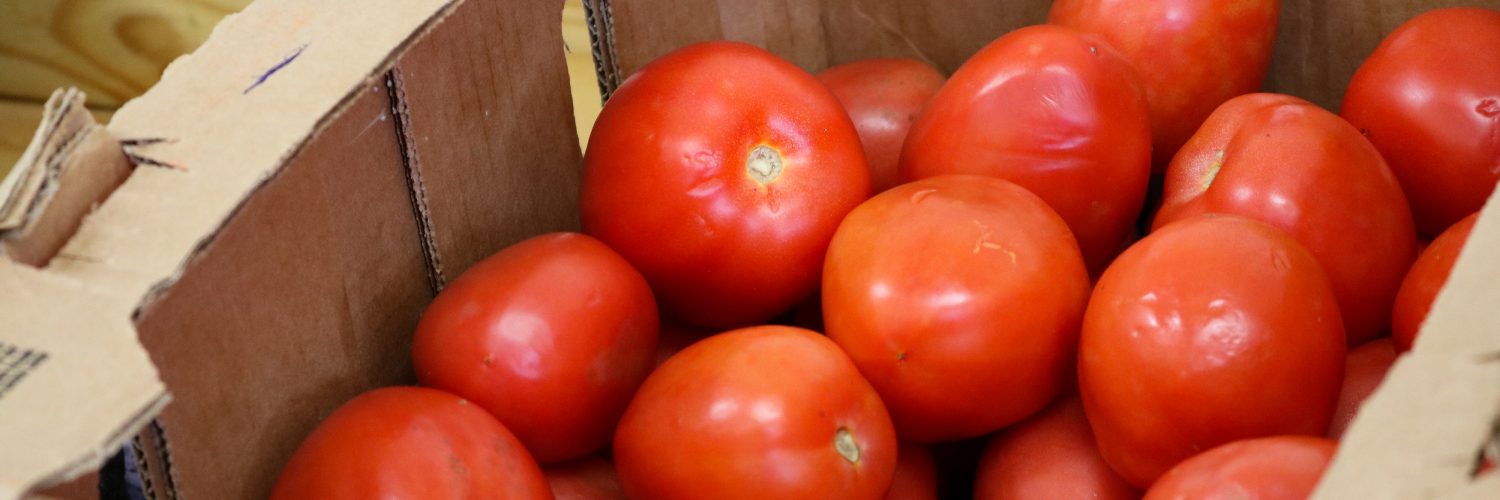The United States Department of Commerce axed the 23-year Tomato Suspension Agreement that kept a high flow of tomatoes coming up from Mexico, through the border, and then onto the plates of hungry Arizonans at a low price. Now, with the end of the agreement, economists, suppliers, and importers alike are looking at the fallout, eyeballing the inevitable rise in prices and fall of supply.
The move, spearheaded by lawmakers out of Florida and approved by the Secretary Wilbur Ross, had been warned about for months as importers and consumers began to consider what pulling out of the agreement would do to prices, supply, and our overall relationship with our biggest trade partner.
Reports have pointed to prices rising anywhere from 40 percent to 85 percent depending on time of year, like in the winter months when demand skyrockets. Plus, it could spell trouble for some of the 33,000 jobs in Arizona. Now, the Department of Commerce says it’s looking to start investigations into whether or not Mexican growers undercut growers in the United States, primarily in Florida, and dumped their tomatoes in the U.S. at unfairly low prices.
Secretary Ross put out a news release touching on this last point, stating that his department is “committed to ensuring that American domestic industries are protected from unfair trading practices.”
But ending the agreement is just a starting point as a new 17.5-percent tariff on Mexican tomato imports has just been imposed. All of this isn’t settling well with those on both sides of the border involved in the tomato trade, an industry that pumps life into the country’s economy by the billions.
At this point, the repeal has brought a hefty amount of confusion among importers who are trying to figure out if they need to pay their bonds or lay people off for the time being, according to economist Luis Ramirez.
“For importers, there’s a bit of gloom and doom,” Ramirez said. “While the formal rules have not been published, the importers don’t even know the procedures for paying their bond. Some of that stuff is supposed to be retroactive, so they’re trying to figure out how to pay new duties and tariffs. There’s uncertainty about how to do it.”
The Fresh Produce Association of the Americas (FPAA) released a statement expressing disappointment with the decision to end the agreement, most notably for the fact that it will impact jobs.
“It is our understanding that the Mexican growers put several proposals on the table to improve an already effective agreement,” the FPAA said in a statement. “Despite the fact that the agreement has been terminated, our hope is that Commerce continues to work in good faith with the growers in Mexico to negotiate a new agreement that balances concerns of growers in Florida with the need to protect our robust trading relationship.”
The FPAA is based in Nogales, a port of entry location for Arizona that lost its crown as the top U.S. gateway for Mexican tomatoes. It usually sees around $600 million-worth of the commodity come through its border during a full import season, but now they expect that number to reduce, as well as jobs cut.
“The FPAA is working closely with our members, (U.S. Customs and Border Protection) and Commerce to ensure that the termination of the agreement and imposition of duties is as seamless as possible,” the organization said last week. “We again thank our members, our industry allies and our elected officials for their tireless efforts in this process.”
Currently, the Department of Commerce said that negotiations will continue with Mexico with the goal of reaching a new deal that would be acceptable to growers on both sides of the border.
A number of Arizona policymakers supported maintaining the agreement with Mexico, including Gov. Doug Ducey and member of the Arizona congressional delegation.
















Add comment